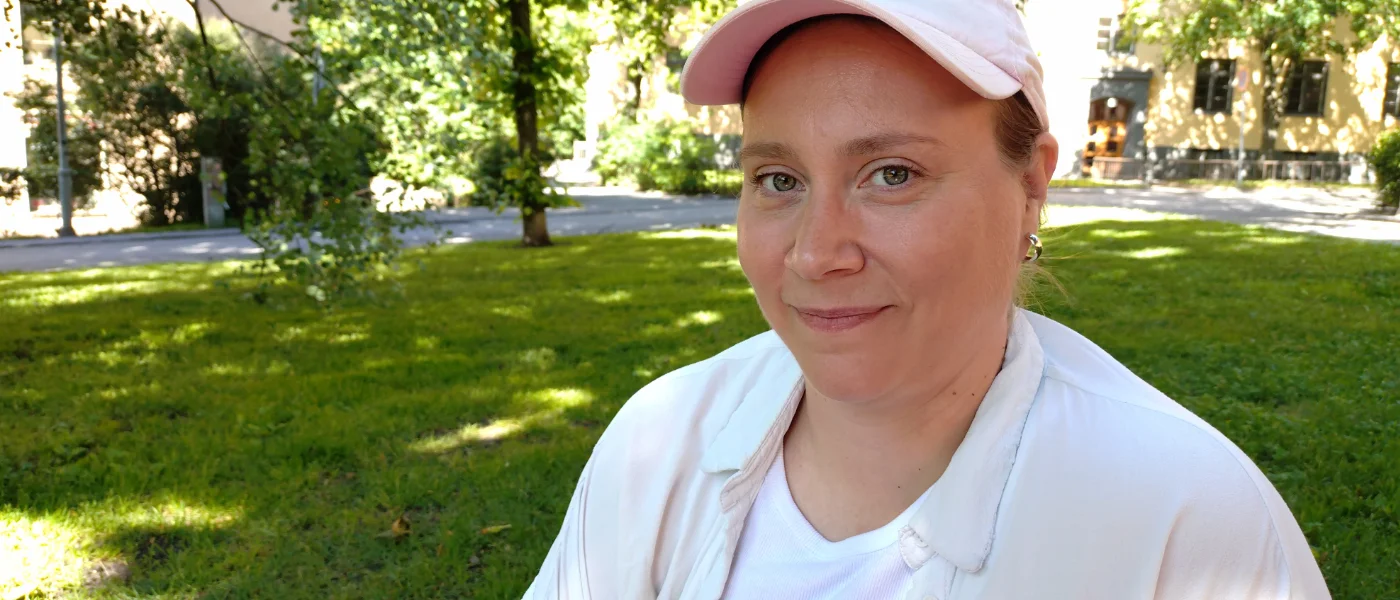

Espoo Ciné interviews a new generation of Finnish filmmakers. First up is Ulla Heikkilä, who talks about her new film and the future of Finnish cinema.
Your second feature film Summer is Crazy (Elämä on juhla) will be screened at Espoo Ciné. This film, like your debut feature Eden (about a religious summer camp), could be described as an ensemble film, where multiple characters are assigned roughly equal amounts of screen time. Are you particularly interested in communities rather than individuals?
Yes, I'm very interested in communities. I think film is a great medium for showing the world, a story, or a theme from multiple perspectives. I’m drawn to this kind of multiplicity because I want to remember—even in life—that I’m not alone here. My perspective is just as big, valuable, and important as everyone else’s. I think telling stories from the viewpoints of several characters serves that worldview.
Summer is Crazy is set during midsummer, and Eden is about a religious summer camp. Why are you drawn to rituals and rites of passage?
I assume that all filmmakers, in their own way, try to find universal themes—something shared or recognizable. Rites, rituals, and all kinds of transitions or celebrations are often quite charged—they come with expectations and layers of both personal and human history. They definitely connect people to each other and to the chain of generations. That’s something that really interests me. I’m also deeply fascinated by sacred places like churches. Even though Summer is Crazy isn’t in any way a Christian film and doesn’t deal with religion or spirituality, there are two scenes set in two different churches. Clearly, I feel a strong pull toward sacred places and places where rites are performed.
What does the future of Finnish cinema look like from your perspective?
I won’t lie and say it looks absolutely amazing, because the situation in the industry has been very challenging in many ways. I think the near future for Finnish cinema will be somewhat lean and turbulent, but maybe, optimistically, that could lead to artistic innovation. Take Romanian cinema in the early 2000s—it was incredibly innovative and of high artistic quality, despite extremely limited resources. So what can scarcity produce? That’s not to say, “Take away the rest of the funding so we can find art through deprivation!” No—please don’t take away the rest of the money! But if you don’t want to fall into despair, that’s the hopeful angle I see.
What kind of films would you like to see made in Finland?
I’d love to see all kinds of films made in Finland—funny films, sad films, films I understand very well, and films I don’t understand at all. Horror films and action films. I hope the full richness of cinema can be found here, too. I also think our current film scene is already quite rich and diverse. But I’d love to see even more films made by people from different backgrounds—more diversity in content, in creators, in artistic styles, and in genres.
In earlier interviews, you have mentioned your interest in history and in women who have been written out of it. Is that still something you want to explore in your future films?
Yes, to some extent. I have this never-ending novel project related to that theme, so it’s definitely something that continues to interest me. I’m also developing a film about Ellen Thesleff. Now, she’s not exactly a woman written out of history, but I do think she’s such a great artist that she deserves much more attention.
Is there anything else you want to make films about?
I would like my next film to be about love. Love that actually works out! What fascinates me in romance is how transformative it is, how it strips people bare, makes them vulnerable and childlike, and the kind of power it has to change us.
Do you have any memories from Espoo Ciné you would like to share?
I think it was two years ago when I had the honor and pleasure of giving the keynote speech at the Sinun Ciné workshop for young filmmakers. Sometimes I find myself slipping into hopelessness about the future of the world—and the future of cinema—and questioning if any of this makes sense. But when you’re giving a keynote speech to young filmmakers, you obviously can’t say, “None of this makes any sense.” Writing that speech ended up empowering me as well, and that felt really important. That’s the freshest Espoo Ciné memory I have. I’ve also seen so many amazing films there.
What does European cinema mean to you?
I think my cinematic roots lie quite clearly in both American indie films and European cinema—in classics like Bergman and Fellini and also contemporary European films. What I value in European cinema is its experimental nature, its unpredictability, and its ability—or willingness—to go beyond storytelling, or even to resist the dominance of narrative. That dominance is often much stronger in American film tradition than it is here in Europe.
Why should people come see Summer is Crazy at Espoo Ciné? What would you highlight for the audience?
First of all, the cast is absolutely incredible—and I don’t say that as self-praise, but purely to praise the actors. I feel so happy and lucky to have such a wonderful and diverse cast. And if you want to enjoy midsummer light and warmth in late summer, the film definitely offers that. A lot happens in it—there’s really quite a bit going on.
Summer is Crazy will be screened as Espoo Ciné’s Finnish Gala Screening on Wednesday, August 27. Filmed in Nauvo, this summery relationship drama follows the Eerola family's midsummer celebration in the archipelago—after which nothing will ever be the same. The film stars Pirjo Lonka, Jani Volanen, Aamu Milonoff, and Jussi Vatanen.
Text and photo: Emma Petäjäaho